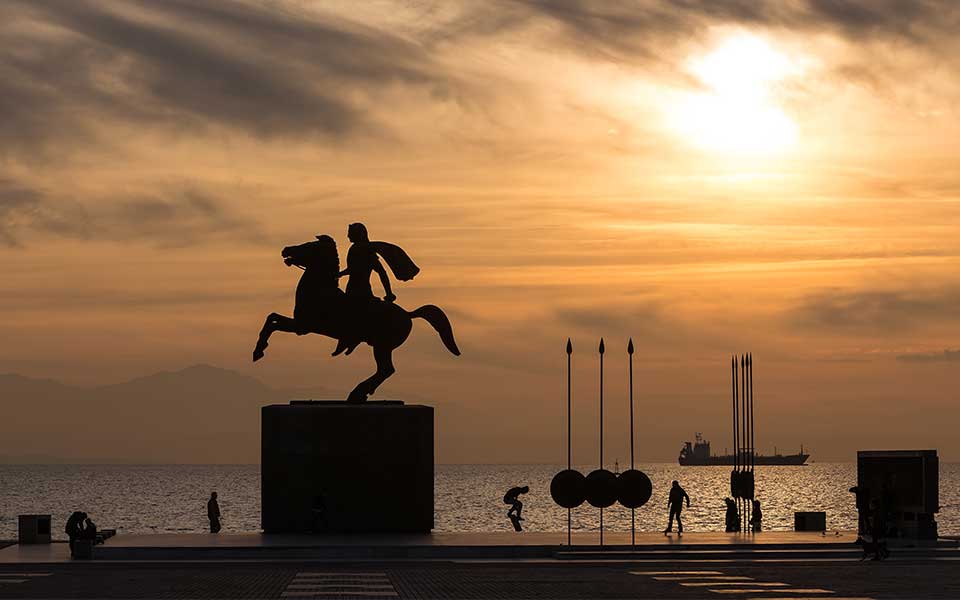You were born in Thessaloniki, in northern Greece: a place of fantastic stories and images, a tapestry of rich and coarse fabrics; the mythical, mystical, and mundane. Alexander the Great, who you were named after, once reigned over and marched through these lands on his way towards conquering everything which lay east of him. Thessaloniki was named after his half-sister, by king Cassander, her husband. It is a place where sultans and dragoons once rode through the streets on carriages and horses; a place of miracles and saintly interventions. It is where a people, the Sephardic Jews, built a new home after becoming exiles six hundred years ago. Where souvlaki is souvlaki, not kalamaki. And every dusk from the paralia, fishermen silently toss their lines into the green waters of the Aegean repeatedly, waiting for just a sliver of luck to strike.
I knew next to nothing about Thessaloniki or northern Greece when I first arrived three years ago with Pumpkin the Golden Retriever (who I know is a curiosity to you now as an infant, but who will become your best friend very soon). What I knew about Greece was limited to Athens and the blue and white Cycladic islands such as Mykonos and Santorini, like for many travelers who pass through Greece. But here’s what I discovered: northern Greece is not white or blue – it’s green. There are the magnificent tall grasses of the Evros Delta just outside Alexandroupoli, the forests of the Rhodope Mountains that rise above the banks of the Nestos River in Thrace, and the peaks of wild Samothraki island, where Poseidon once sat for ten years, watching the Trojan War from a godly distance.
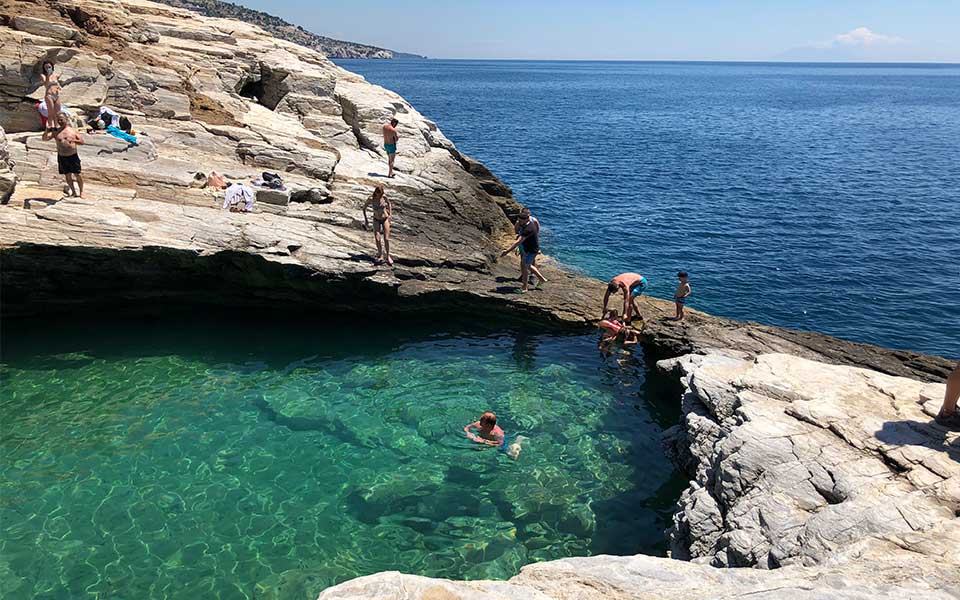
© Liz Lee
As fate would have it, northern Greece is where I found myself, alone, when a great pandemic began. This is where I started thinking about you. You began as an audacious idea, one born on the precipice of opportunity. And, my son, one important thing to learn in this life is how to recognize and seize moments before they disappear. This will require experience and many, many mistakes. And you will need courage, which, if there is one, I believe is the secret to a life well-lived. For within decisions born of courage, even the worst failures will hold a tiny golden seed, deep inside. And from this seed, future successes can be born. Like you, my biggest and proudest achievement.
We will leave Greece soon for our next assignment. There is so much I want to tell you about this place – about the region’s famed gastronomy, its rich religious diversity, its many archeological treasures, such as the tombs of Aigai in Vergina and the Lion of Amphipolis…the list goes on. But we have time. When we return, and you are older, we can discover all of this together. Today, I wanted to share some of my favorite places in the outdoors here that have made the past three years unforgettable.
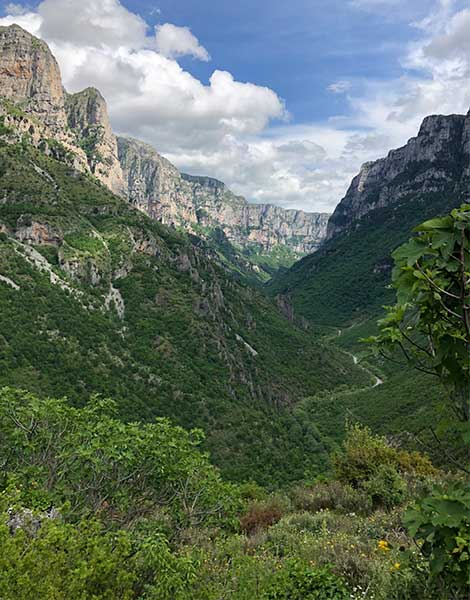
© Liz Lee
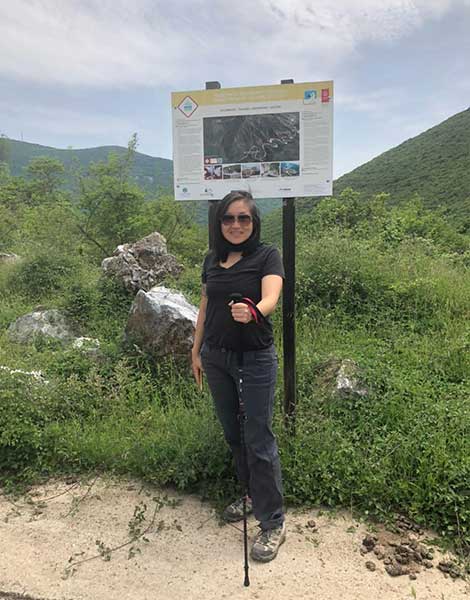
© Liz Lee
The outdoors has always been my refuge. Walking in a hushed forest alone in the early morning for me is akin to being inside a canopied, living monastery, with bird song choruses as litanies. There is peace, restoration, and strength on the trail, as well as the thrill of discovery. What’s around the next bend? A dramatic vista? A wild pig? (And yes, there are many of those here.) There is a simple joy in putting one foot in front of the other and moving forward, regardless of obstacles, be they weather or a steep incline. Although walking is still at least several months away for you right now, at times in your life, you’ll find that taking even small steps forward may seem difficult. My advice at those moments is to find a good trail, somewhere beautiful. Lace up your boots. And try.
Northern Greece has more than its fair share of beautiful hiking, such as magical Mount Olympus, seat of the Greek pantheon. These trails were the first that I tackled with Pumpkin upon arriving in northern Greece, followed shortly thereafter by the Rhodope Mountain range in Thrace. Although it’s not strictly in my consular district, I would be remiss if I didn’t mention Vikos Gorge in Epirus, one of the deepest gorges in the world with a magnificent view, and a frigid, deep blue-green pool waiting for weary hikers at the bottom (which I confess I was not brave enough to swim in). Next to the Gorge is an alpine lake, one of the many drakolimnes, or Dragon Lakes, high in the Pindos Mountains. According to myth, it’s where dragons battled overhead with stones, pitting and pockmarking the landscape. More likely, it was named after the numerous newts which claim the lakes as their habitat. If you squint hard, they look like tiny dragons. We can decide which version is true when we go there together.
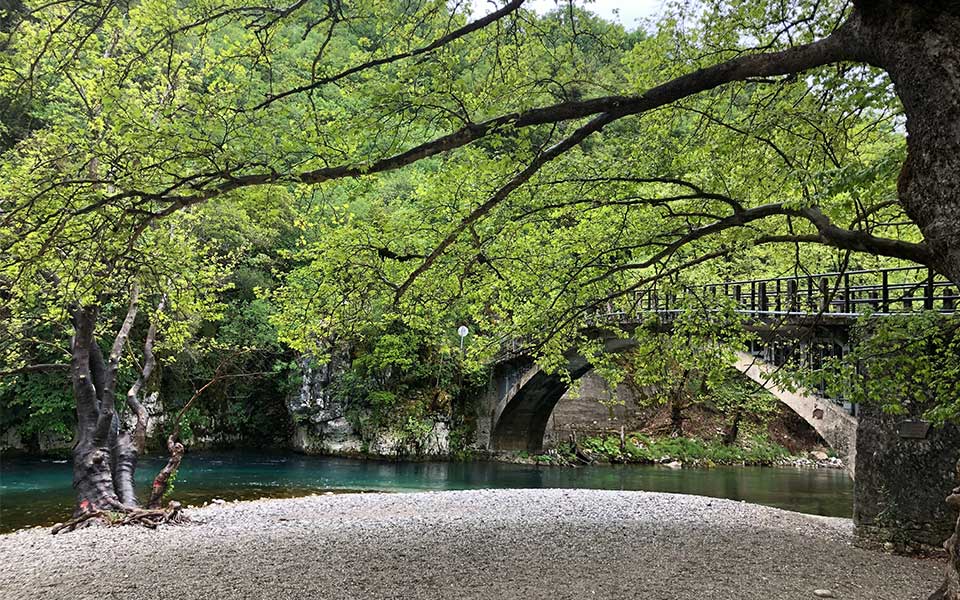
© Liz Lee
The mountains, rocks, seas, and rivers in Greece all have a tale to tell. For example, there is the Acherondas River, which in ancient times was believed to flow into Hades as one of the five great rivers of the underworld. Although the name in ancient Greek means, “unhappiness” or “misery,” the river is quite beautiful, teeming with fish and birds. It carries many faces. Near the mountains, it is cold, green, and fast-moving – I swam it one summer with Pumpkin (I had a wetsuit, she did not) and we saw trout swimming curiously alongside us as we pushed upstream to eddies, pools, and waterfalls. Closer to the sea, the river is best explored by kayak. It is calmer, and willow trees hang low on its banks, with bird nests lodged in their branches, gently touching the water. But before very long, the tree-lined banks have disappeared from view, and you are emptied into the impossibly blue waters and wide expanse of the Ionian Sea.
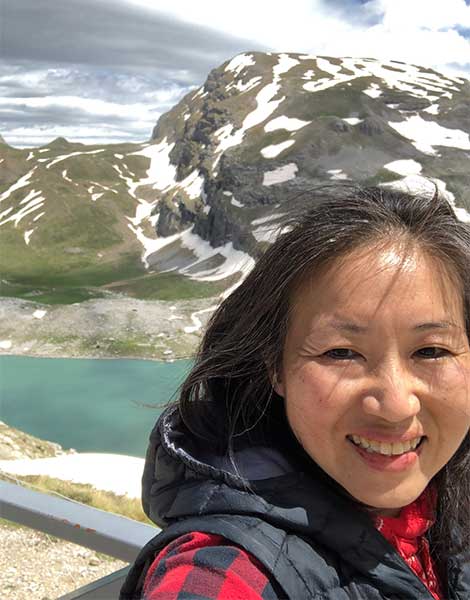
© Liz Lee

© Liz Lee
While the famed Cyclades Islands, such as Mykonos and Santorini, are lauded for their turquoise waters and stunning beaches, the sea in northern Greece is just as breathtakingly beautiful. Northern Greeks are rightfully proud of the Halkidiki region, which is a peninsula comprised of three legs: Cassandra, Sithonia, and Athos, with an impressive coastline that stretches for hundreds of miles with beaches that rival any island. I spent a lot of time exploring Sithonia’s rugged, less-developed beaches, where I would often swim or stand-up paddleboard with Pumpkin at the helm, and Mount Athos, one the most holy mountains in all of the Orthodox Christian world, standing in the distance and flying fish leaping around me. There is a northern Greek saying, «Σαν την Χαλκιδική δεν έχει» (“there is no place like Halkidiki”) – and I believe this to be true.
There is so much more to write about: the island of warm and sandy Thassos and its even warmer people, Kastoria the lakeside city of churches, the monasteries built into cliffs and on top of rocky pillars in Meteora, and the Old Town of Xanthi by moonlight…but what makes Thessaloniki and northern Greece so special is not just its natural beauty, mythology, or its history – it’s the people who live here and it’s the incredible filoxenia that is a deep part of their culture. As diplomats, we take pieces of the places we leave with us. But the past three years in Thessaloniki changed my life: it is not only the place where you were born, but also where I met my wife, your other parent – and it is where we became a family. For me, «Σαν την Βόρεια Ελλάδα δεν έχει» – there is no place like northern Greece. Thessaloniki and this region will always have a special place in my heart.

